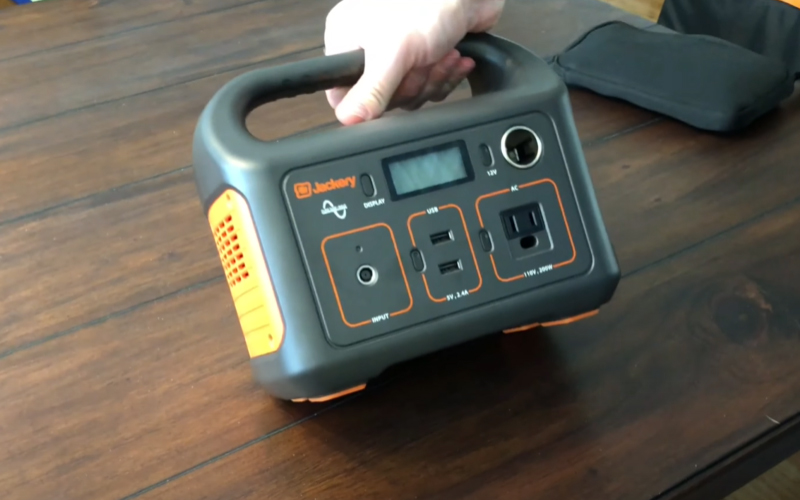Standby Vs Portable Generator – Which One Is The Best For You?
In this article, we have covered “standby vs portable generator”, the main differences based on efficiency, fuel, convenience, cost, runtime, and portability, which one is best for you.
In 2013, only 3% of people had standby generators, and 12% had portable generators. It is now more than 5% since last year due to a surge in natural disasters like hurricanes, floods, and extreme colds which lead to power outages.
The question is whether you want a standby generator or a portable generator. Both can be very powerful but there are some differences between them.
What Are Portable Generators?

Portable generators are manually operated. They are mainly used for outdoor activities like camping, tailgating, and RV usage. They provide excellent mobility, they consume less fuel, are not as noisy as a huge standby generator, you can carry them around, and they can be bought at a cheaper price.
Some portable generators can produce as high as 10000 watts easily to run most of the major appliances in your home, but generally, they are bought to provide a temporary solution to power outages.
They require little maintenance, and they rely on gasoline or propane to operate.
Portable generators are great, their sale is higher than standby generators because they can manage the workload and they are budget-friendly.
But, they are not usually used for huge power outages which means, it is not the best choice if you are looking for 100% hands-free emergency power.
Checkout our guide about smallest portable generator
What Is A Standby Generator?

Standby generators are ideal for huge power outages because they automatically start and restore power within seconds. This generator power all the critical appliances in your home.
They are also known as whole-house generators and they are permanently installed. A standby unit is more expensive than a portable generator, it is bulkier and heavier, and more expensive.
They also provide clean power even if you run them on propane or natural gas to keep sensitive appliances like cellphones, laptops, TVs, and computers safe.
Checkout our detailed guide about standby generators
Standby Vs Portable Generator – What Is The Difference?
| Difference | Standby Generator | Portable Generator |
|---|---|---|
| Monitoring and operation | They are automatically operated. You don’t need to be at home. After a few seconds of delay, the generator will kick in. No need to worry about storing or refueling. The generator needs to be hooked up with a consistent energy source. | They are manually operated. You need to be at home when the power goes out to carry the generator and plug it in. You need to manually refuel it and store extra fuel in case of emergencies. |
| Installation | You need a licensed professional to install a standby generator. There are a ton of small steps that only a professional can do it properly. I have seen generator veterans and enthusiasts who have installed standby units on their own, but not everyone can do it. So better safe than sorry. | You don’t even need to install it in the main electrical panel. Set the generator up with fuel, hook the plug (50amp or whatever is required), and you are good to go. Installation is pretty easy anyway. |
| Cost | Standby generators are expensive. They cost around $2500 to $4000 for a model that can power your entire house. Depending on the fuel, you will spend an additional $2000 to $4500 on installation. | The cost of a portable generator ranges from “$500 to $2000” which can handle up to 8000 watts. These generators can handle a high level of load. |
| Portability | Standby Generators are permanently installed. You cannot move them to another location or other part of the house. You need to think about the shelter and protecting the generator from harsh weather in advance. | Portable generators are mostly used outdoors. |
| Noise | Both generators produce some degree of noise. Most standby units emit noise in the 65dB to 89dB range which is a standard for large units. | Portable generators can be quieter if it is a low-wattage models. Most 2000 to 4000-watt portable generators emit noise in the 60dB to 72dB range. |
| USES | Standby generators are convenient and mostly used for homes, corporate offices, and work sites. Your installer will calculate the load and will tell you how many loads you can put on your standby generator. The generator will shut off if it can’t handle the load. | Portable generators are mostly used for outdoor and camping purposes, but they can run and power your house because they come in all sizes and shapes. Large portable units can power your microwave, AC, fridge, lights, and other low-wattage appliances. |
| Environmental Impacts | Standby generators are much safer in terms of incomplete combustion (carbon monoxide). The installation will meet all the local electricity, fire, and building codes to ensure maximum safety. | Portable generators do produce a lot of carbon monoxide due to incomplete combustion. That is why we use it outdoors away from the windows and people. Nowadays co-minder sensors are installed to sense the concentration of CO which leads to automatic shutoff to prevent danger. Technology is improving but still, portable generators produce more CO than standby generators. |
| Return on investment | You can expect a 50% to 55% return on investment and standby generators are known to increase the property value. | Portable generators don’t increase property value because you can take them with you. |
Standby Vs. Portable Generator – Which One Is Best For You?
It boils down to the need. If you are an outdoor guy who likes camping, tailgating, and generating outdoor activities, then a portable RV generator is better for you.
It is also better for you if your home doesn’t experience a lot of power outages. A huge number of people purchase portable inverter generators every year.
A standby is like a permanent solution to power outages for people who are clumsy like me. A standby generator will essentially run all of your major appliances because the installer calculates everything before the installation.

Alex Black is a seasoned electrical engineer with a remarkable 8-year track record specializing in appliances, generators, and transfer switches. With extensive hands-on experience in the field, Alex possesses a deep understanding of electrical systems and their intricate workings. Throughout their career, Alex has consistently demonstrated expertise in designing, troubleshooting, and maintaining various electrical appliances.
